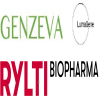Dive Brief:
- Gilead Sciences plans to submit a new triple combination HIV therapy for U.S. approval by the end of the second quarter, moving up its regulatory timeline slightly after announcing Monday four late-stage trials of the treatment succeeded.
- The four Phase 3 studies showed treatment with a combination of Gilead's experimental integrase inhibitor bictegarvir and the biotech's already approved Descovy (emtricitabine/tenofovir alafenamide) matched the viral suppression capabilities of current combination therapies containing GlaxoSmithKline's Tivicay (dolutegravir).
- Gilead, on the ropes from flagging sales of its mainstay hepatitis C drugs, has grown more dependent on growth from its HIV franchise to help offset the hit to its bottom line.
Dive Insight:
Skyrocketing sales of Sovaldi (sofosbuvir) and then Harvoni (ledipasvir/sofosbuvir) buoyed Gilead's revenues to new heights in 2014 and 2015.
But the drugs' high level of effectiveness meant many of the most accessible patients were quickly cured, depleting the pool of patients ready to start a new course of treatment. Add in increased competition from drugs developed by AbbVie and Merck & Co., along with shorter therapy duration, and sales have fallen dramatically over the past six quarters.

While a decline after the initial build-up had been expected, investors were surprised when Gilead sharply cut its 2017 guidance for sales of its hepatitis C drugs. Combined sales of Harvoni, Sovaldi and the more recently approved Epclusa (sofosbuvir/velpatasvir) are now expected to come in at between $7.5 billion and $9 billion for the year, significantly less than the $14.8 billion the drugmaker earned in 2016.
That accelerated fall-off in sales means the company's growing HIV franchise is receiving more attention. Over the past year and a half, Gilead has been rolling out a wave of new HIV treatments that rely on an improved form of the active ingredient tenofovir, securing approvals for Genvoya (elvitegravir, cobcistat, emtricitabine, tenofovir alafenamide), Odefsey (emtricitabine, rilpivirine, tenofovir alafenamide) and Descovy in the U.S.

According to Gilead, 48% of treatment-naive patients with HIV initiated therapy with either Genvoya, Odefsey or Descovy in the fourth quarter of 2016.
Success pairing bictegravir with Descovy would give Gilead another arrow in its quiver of TAF-containing regimens. Company executives believe the BIC-F/TAF combo, as it is known, would help accelerate the adoption of TAF-based regimens, building on the existing momentum from the other three already approved drugs.
Two of the four Phase 3 trials tested BIC-F/TAF against treatment regimens containing GlaxoSmithKline's Tivicay in treatment-naive patients with HIV-1 infection, while the other two studied the effect of switching patients with virological suppression to BIC-F/TAF.
The triple combo demonstrated non-inferiority in all four of the studies and was well tolerated. No patients discontinued due to renal events and none treated with bictegravir developed treatment-emergent resistance to the drugs.
Gilead expects to present more detailed data on the studies as upcoming conferences this year.














